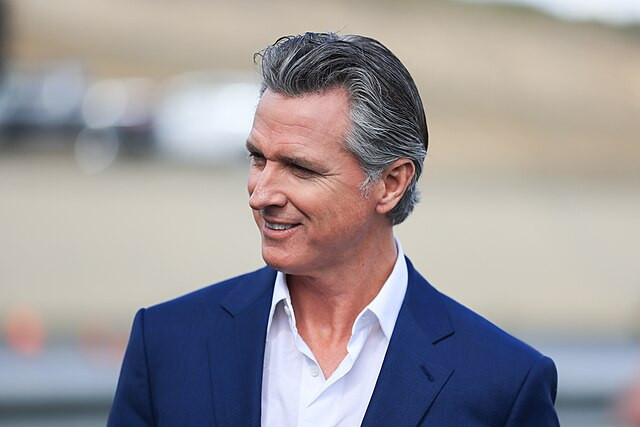California Governor Gavin Newsom is proposing a $7.5 billion federal tax credit for the American film and television industry, a direct response to President Donald Trump's plan to impose a 100% tariff on movies produced abroad. The proposal signals an unexpected olive branch from one of Trump's most outspoken critics amid mounting concern over the outsourcing of U.S. entertainment production.
"California built the film industry - and we're ready to bring even more jobs home," Newsom posted Monday on X. "We've proven what strong state incentives can do. Now it's time for a real federal partnership to Make America Film Again." He tagged the official presidential account and added, "@POTUS, let's get it done."
Newsom's comments come just one day after Trump wrote on Truth Social that he was authorizing the U.S. Department of Commerce and the U.S. Trade Representative "to immediately begin the process of instituting a 100% Tariff on any and all Movies coming into our Country that are produced in Foreign Lands." Speaking outside the White House, Trump doubled down, blaming Hollywood's decline on "a grossly incompetent governor" and foreign nations "shelling out big money" to lure U.S. productions abroad.
The White House said Monday that "no final decisions" had been made but confirmed it was "exploring all options" to fulfill Trump's pledge to "Make Hollywood Great Again." Aides said Trump had received a formal proposal from Hollywood ambassadors Jon Voight and Steven Paul at Mar-a-Lago over the weekend. The plan includes tax incentives, revisions to multiple tax codes, job training initiatives, co-production treaties, and targeted tariffs.
"While President Trump regularly corresponds with his Hollywood Ambassadors, including Jon Voight, to restore America's cultural dominance, it was President Trump himself who formulated the idea of using tariffs to Make Hollywood Great Again," said White House spokesman Kush Desai.
Voight's delegation reportedly met with major unions, studios, and streamers before delivering the proposal, which calls for expanded domestic subsidies and job creation in post-production and theatrical infrastructure. "The president loves the entertainment business and this country, and he will help us Make Hollywood Great Again," Voight said.
Democratic Senator Adam Schiff also weighed in, criticizing Trump's tariff proposal as potentially "damaging" but expressing willingness to collaborate. "I welcome the opportunity to work with the administration and my Republican colleagues to pass a globally competitive federal film incentive to bring back run-away production," Schiff said.
Though more than 30 U.S. states offer film tax incentives, none exceed $1 billion. Newsom's proposed $7.5 billion federal plan would mark the largest national film subsidy in history.
Trump's tariff announcement and Newsom's counterproposal land during a pivotal moment for the domestic entertainment industry, which continues to grapple with the effects of post-pandemic production shifts, overseas competition, and Hollywood labor unrest. While trade groups and streamers remain silent on Trump's tariff threat, studio insiders said they have received no invitation from the White House for upcoming policy discussions.
Meanwhile, Newsom, who last month sued the Trump administration over what he called "an unprecedented tariff regime," is taking a dual-track approach - opposing broad tariffs while signaling support for reshoring production through federal incentives.






